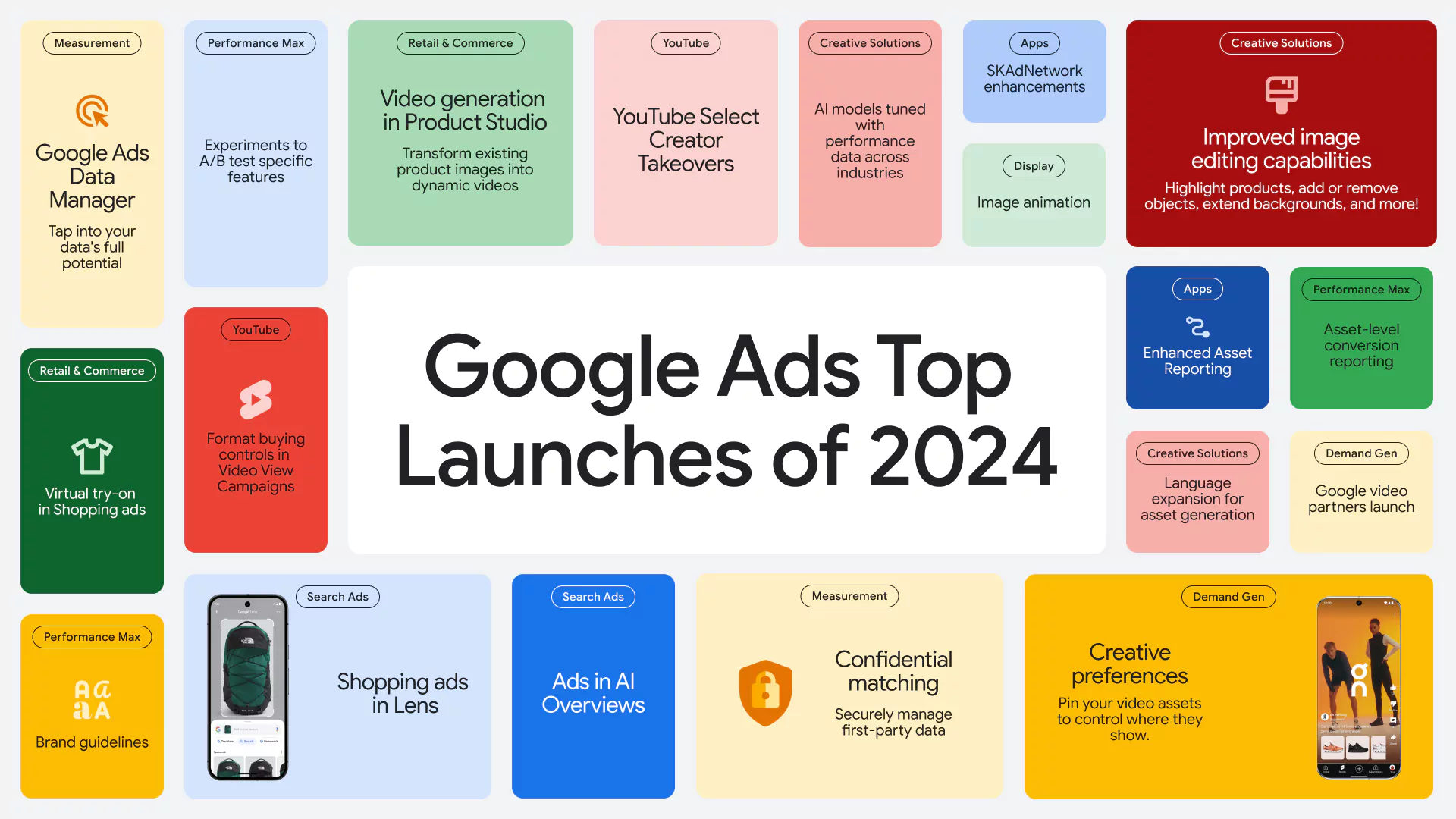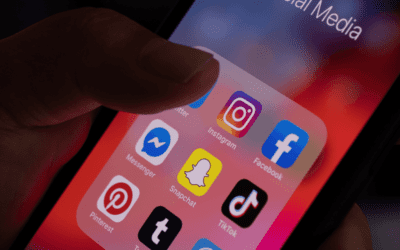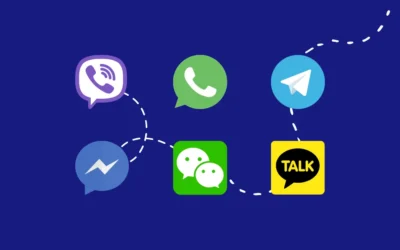Google Ads 2024 Recap: Key Innovations and a Glimpse into 2025
This year, Google Ads introduced a series of updates across campaign types, creative tools, media activation, and measurement solutions. Many of these changes were directly shaped by advertiser feedback, signaling Google’s ongoing commitment to innovation and improved user experience. Below, we’ll highlight the most impactful trends and launches, along with the technological and consumer behaviors driving them.
Search Is Changing: New Opportunities for Advertisers
Google Search has evolved significantly, transforming how people search and the results they receive.
•Longer, Complex Queries: Searches are becoming more detailed. Queries of 5+ words are now growing 1.5x faster than shorter queries (Source: Google Internal Data). This shift has made broad match essential for keeping up with the diversity of searches.
•AI Overviews: Powered by large language models (LLMs), AI Overviews simplify responses to complex queries. It’s now available in 100+ countries, serving over 1 billion users monthly.
•Visual Search Growth: Visual searches using Google Lens are surging, with 20 billion monthly searches—1 in 4 having commercial intent. To align with this, Google launched Shopping Ads in Lens results and AI Overviews.

More Personalized Shopping Discovery
Google reimagined the Shopping experience to better engage users.
•New Shopping Tab: Available on U.S. mobile, this tab features personalized feeds, deals pages, and tools like Virtual Try-On, powered by Gemini models, to simulate clothing on real models of diverse shapes.
•Merchant Center Enhancements: Renamed “Merchant Center,” it now includes advanced performance insights, visual reporting, and tailored recommendations.
Creative Solutions: Faster, Easier, and Scalable
Google continues to simplify creative production with powerful AI tools.
•Conversational Search Campaigns: Expanded globally in English, Spanish, French, and German, this feature helps businesses—especially smaller ones—launch higher-quality ads faster. Advertisers using this tool are 63% more likely to achieve “Good” or “Excellent” Ad Strength.
•Generative Image Capabilities: Tools like Imagen 3 improve image quality for ads across Performance Max, Demand Gen, and Display campaigns. AI-powered asset enhancements now include smart cropping, animations, and improved resolution.
•Image Editing: Easily adjust assets for seasonal trends with features like background extension, resizing, and custom edits across multiple campaign types.
•Product Studio Updates: Adds video animations and allows asset edits to better reflect brand visuals.
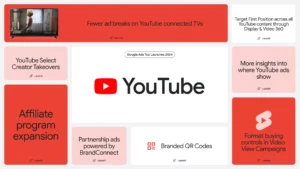
Video Innovation for YouTube and Shorts
Google Ads expanded its video capabilities to cater to businesses of all sizes.
•Video Enhancements: Google AI can now generate flipped and shortened versions of videos automatically.
•Voice-Overs: Advertisers can add AI-generated voice-overs to YouTube video ads in over 12 languages.
•YouTube Shorts: With 70 billion daily views, Shorts offer new opportunities. Branded QR codes, Shorts-only campaigns, and creator-driven Partnership Ads were all introduced this year.
Greater Control and Transparency
Advertisers now have more tools to guide AI and achieve business goals.
•Search Campaign Controls:
•Brand inclusions and exclusions for better query targeting.
•Negative keywords now account for misspellings automatically.
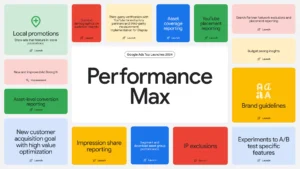
•Performance Max Updates:
•Campaign-level negative keywords and brand guidelines for on-brand visuals.
•Enhanced reporting insights, including asset-level conversions and impression share.
Bidding Innovations Tailored to Specific Goals
Bidding options now address unique advertiser objectives, such as omnichannel optimization, lead generation, and profitability.
•Omnichannel Goals: Optimize for online conversions and in-store visits.
•Value-Based Bidding: Tools to prioritize high-value leads and customers.
•Profit-Based Bidding: A new gross profit goal allows Smart Bidding to optimize for profitability seamlessly.
Measurement, Privacy, and First-Party Data
Google’s privacy-centric tools make it easier to measure performance without compromising user trust.
•Google Ads Data Manager: Simplifies connecting and managing first-party data. Confidential matching ensures secure processing for Customer Match and enhanced conversions.
•Tag and Measurement Diagnostics: Quickly identify and resolve setup issues for improved performance tracking.
•Lead Funnel Reporting: Adds visibility into offline conversions for lead-generation campaigns.
Looking Ahead
As AI becomes central to marketing, its power lies in helping businesses adapt to market changes and deliver better customer experiences. With strong data inputs and a clear focus on business goals, AI can drive meaningful results while freeing marketers to focus on strategy and creativity.
Expect continued advancements in 2025, enabling advertisers to create, measure, and optimize campaigns with greater efficiency. Keep sharing feedback, and stay tuned for more innovative solutions to come!

